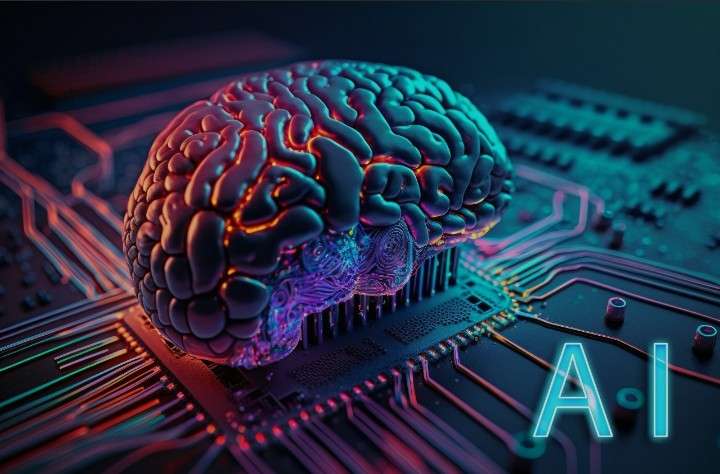As the world rapidly shifts into an AI-driven future, one burning question lingers for young Africans, digital creators, tech workers, and students alike: Which AI skills are genuinely profitable and worth learning in 2025?
According to a joint report by the International Finance Corporation (IFC) and Google, Africa’s digital economy could contribute over $180 billion to GDP by 2025. Within that, artificial intelligence is emerging as one of the continent’s most promising growth engines. But while AI is often associated with complex algorithms and PhDs, the truth is, many high-income AI skills are now accessible, and learnable from your smartphone or laptop.
Below are five proven AI skills that are productive, profitable, and already transforming the lives of ordinary Africans. Each comes with real-world examples, salary expectations, and practical steps to get started.
Prompt Engineering: The New Gold of Generative AI
Prompt engineering is one of the simplest, yet most profitable AI skills of this era. It involves crafting clear and strategic inputs (prompts) to get specific, high-quality outputs from AI models like ChatGPT, Claude, Midjourney, and DALL·E. The better your prompt, the more valuable the result, be it a business ideas, social media captions, images, or product descriptions.
In Nigeria, tech entrepreneur, Timi Ajiboye used prompt-based AI tools to create guides and micro-products, selling them online via Gumroad and building a loyal tech audience. On marketplaces like PromptBase, skilled prompt engineers are earning $2,000 to $5,000 per month.
Entry-level prompt engineers can make around $30 per hour, while top-tier consultants, especially in HR, legal, or finance, may command up to $300/hour. Learning resources are readily available. OpenAI offers free documentation, while platforms like LearnPrompting.org and PromptHero provide deeper dives.
Natural Language Processing (NLP): Making AI Understand Us
Natural Language Processing (NLP) empowers machines to read, understand, and respond to human language. From chatbots to voice assistants to summarizing documents, NLP is at the heart of today’s AI revolution.
In East Africa, the health-tech startup Zuri Health has successfully deployed SMS-based AI chatbots powered by NLP to triage patients in rural communities. Google has also released AI language models trained in Yoruba and Swahili, creating exciting opportunities for African developers and linguists to localize AI.
Earnings in this field vary by role. Data labelers can earn $400–$700 monthly, while full-time NLP engineers earn as high as $80,000 annually globally, and about ₦6 million to ₦12 million/year locally. Hugging Face offers a free NLP course, while Coursera and Udemy provide structured certifications in text analysis and language modeling.
AI Content Creation: From Side Hustle to Full Income
AI-powered content creation is booming in today’s creator economy. Writers, influencers, and digital marketers are using AI tools like ChatGPT, Jasper, ElevenLabs, Pika Labs, and Runway ML to generate blog posts, videos, social media ads, and even music lyrics.
Popular Nigerian tech content creator, Fisayo Fosudo has hinted at how AI tools support parts of his YouTube video scripting and research process. Globally, AI writers and freelancers are earning between $500 and $3,000 per month, depending on output and niche. On platforms like Fiverr and Upwork, demand for AI-generated content is skyrocketing.
To get started, beginners can explore ChatGPT or Copy.ai to write blog articles or generate captions. Those into video can experiment with Pika Labs or Runway ML to create short-form videos. The barrier to entry is low, and monetization is fast.
Computer Vision: Teaching Machines to See and Understand
Computer vision allows machines to interpret and act upon visual information, an essential component in fields like surveillance, agriculture, and digital identity.
In Nigeria, Zenvus, an agritech platform, uses computer vision to detect crop disease through image analysis. Similarly, Ghana’s Bace API uses AI-powered facial recognition for secure customer verification in banking.
Computer vision developers, especially those skilled in Python, OpenCV, and YOLO (You Only Look Once), are in high demand. Junior developers can earn ₦6 million per year, while international freelance projects range from $1,000 to $10,000 depending on the application. Learning options include free tutorials on OpenCV via YouTube and more advanced training on Udacity or Coursera.
MLOps: The Hidden Engine Behind AI Products
MLOps, or Machine Learning Operations, is the backbone of all AI-powered businesses. It deals with deploying, monitoring, and scaling machine learning models in production environments. Think of it as DevOps for AI.
Nigerian engineers like Obinna Ekezie, who now work remotely with global fintech companies, specialize in maintaining fraud detection models and data workflows in real-time. MLOps engineers are highly paid, with global salaries starting from $70,000/year, and remote roles offering $3,000–$6,000 per month.
Key tools in this domain include Docker, MLflow, Git, and cloud platforms like AWS and Google Cloud. Beginners can take advantage of the free MLOps Zoomcamp by DataTalksClub or enroll in Coursera’s ML Engineering specialization.
Why These AI Skills Matter, (Especially for Africa)
Artificial Intelligence isn’t just a global trend, t’s actively reshaping how work is done, businesses are built, and services are delivered. For Africa, mastering AI skills is especially urgent and impactful for several key reasons:
Job Displacement vs. Job Creation
As automation grows, some traditional jobs, like data entry or basic customer service, are at risk. But AI is also creating new types of jobs that didn’t exist a few years ago (like AI content creators, prompt engineers, or chatbot trainers). Those who learn these skills early can transition, compete, and thrive.
Remote Work Opportunities
AI skills unlock access to global job markets. Whether you’re in Lagos, Nairobi, or Accra, you can work for startups in San Francisco or Berlin. With the rise of remote work, talented Africans can now earn in dollars or euros without leaving the continent.
Growing Local Demand
African governments and companies are beginning to adopt AI for healthcare, agriculture, education, and fintech. This means a growing local demand for professionals who understand how to build, use, or manage AI tools.
National AI Policies
Countries like Nigeria, Kenya, and Rwanda are already drafting AI policies and national strategies, signaling that AI will soon be a formal part of national development. Early adopters of AI skills could become key players in these emerging ecosystems.
Africa’s Youth Can’t Afford to Sleep on AI
These five AI skills are more than just trends, they are high-income, scalable, and globally relevant. And the best part? You don’t need a computer science degree or expensive equipment to begin. With a smartphone, internet access, and commitment, anyone can learn and monetize these skills from anywhere in Africa.
In 2025 and beyond, whether you’re a student, creator, entrepreneur, or teacher, understanding and applying AI might just be your ticket to financial freedom and future-proof relevance. In short, AI isn’t coming, it’s already here. And those who understand how to use it, build with it, or guide its implementation will be the ones shaping the continent’s digital future.





